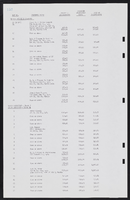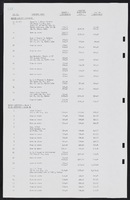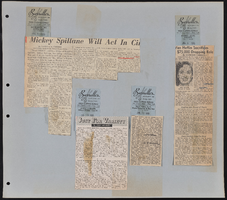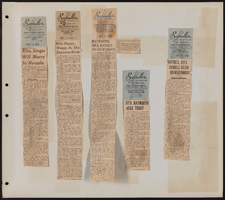Search the Special Collections and Archives Portal
Search Results
Theda Grinnell oral history interview
Identifier
Abstract
Oral history interview with Theda Grinnell conducted by Fletcher Corey on February 28, 1977 for the Ralph Roske Oral History Project on Early Las Vegas. Grinnell first talks about her move to Nevada and both her and her husband’s employment at the Nevada Test Site. She also talks about the atomic testing blasts, the United States' competition with Russia on nuclear technology, and her employment history. Grinnell later discusses her church membership and goes into detail about the race riots and how they involved and impacted her family. She ends the interview with a discussion of flash floods, the Culinary Workers Union, how World War II affected industry in Las Vegas industry, and the social changes in Las Vegas.
Archival Collection
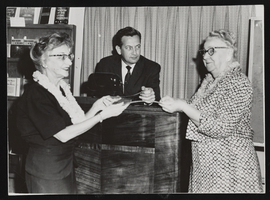
Photograph of individuals in a religious bookstore, (Nev.), 1940-1955
Date
Archival Collection
Description
Image

Transcript of interview with Walter John Ritzau by Elizabeth Garrison, February 25, 1977
Date
Archival Collection
Description
On February 25, 1977, Walter John Ritzau interviewed Elizabeth Schneehagen Garrison (born 1943 in Las Vegas, Nevada) about her life in Southern Nevada. Garrison first talks about her schooling in Las Vegas and her first homes in Las Vegas. She also discusses the atomic testing, the Devils Hole in Ash Meadows, early church involvement, recreational activities, and some of the environmental aspects of Las Vegas. Garrison later describes her work for the Central Telephone Company before describing the Helldorado parade and some of the early activities designed for children. In the latter part of the interview, she describes her father’s garden, the changes in the city environment and building, shopping locations, and more about her home life.
Text
Evans, Earl A., Jr. (1935-1999)
Earl A. Evans Jr. was born on March 03, 1935 in Alahambra, California. He was a bishop for the Mormon church in Las Vegas, Nevada and he served on the Clark County School Board.
Person
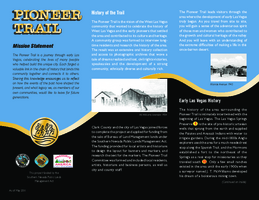
Brochure, Pioneer Trail of West Las Vegas community
Date
Archival Collection
Description
Brochure highlights and maps historic points of interest in West Las Vegas.
Text

Dr. Nancy Leveque interview, July 3, 1975: transcript
Date
Archival Collection
Description
On July 3, 1975, Robin Wright interviewed Doctor Nancy Leveque (b. 1933 in Oak Park, Illinois) about her time living in Las Vegas, Nevada. The interview covers, among many wide-ranging topics, Leveque’s move to and away from Las Vegas, her career as a veterinarian, and the practice she and her then-husband built. Leveque also discusses how the city of Las Vegas has changed-environmentally and socially-, special interest groups and social activities, as well as natural phenomena. Throughout the course of the interview, Leveque provides anecdotes about prominent figures and old Las Vegas traditions, such as Helldorado.
Text

